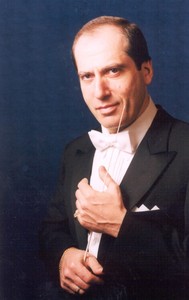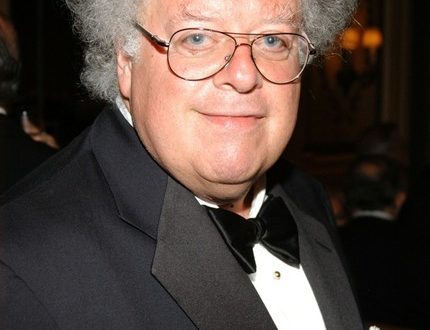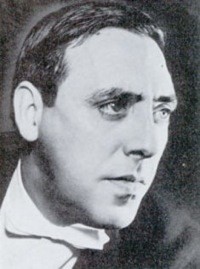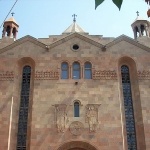
Pavel Leonidovich Kogan |
Pavel Kogan

The art of Pavel Kogan, one of the most respected and widely known Russian conductors of our time, has been admired by music lovers all over the world for more than forty years.
He was born into an illustrious musical family, his parents are the legendary violinists Leonid Kogan and Elizaveta Gilels, and his uncle is the great pianist Emil Gilels. From a very early age, the creative development of the Maestro went in two directions, violin and conductor. He received special permission to simultaneously study at the Moscow Conservatory in both specialties, which was a unique phenomenon in the Soviet Union.
In 1970, eighteen-year-old Pavel Kogan, a student of Y. Yankelevich in the violin class, won a brilliant victory and won the First Prize at the International Violin Competition. Sibelius in Helsinki and from that moment began to actively give concerts at home and abroad. In 2010, a panel of judges was instructed to choose the best of the winners of the competition in the history of its holding for the Helsingin Sanomat newspaper. By unanimous decision of the jury, Maestro Kogan became the winner.
The conductor’s debut of Kogan, a student of I. Musin and L. Ginzburg, took place in 1972 with the State Academic Symphony Orchestra of the USSR. It was then that the Maestro realized that conducting was the center of his musical interests. In subsequent years, he performed with the main Soviet orchestras both in the country and on concert tours abroad at the invitation of such outstanding masters as E. Mravinsky, K. Kondrashin, E. Svetlanov, G. Rozhdestvensky.
The Bolshoi Theater opened the 1988-1989 season. Verdi’s La Traviata staged by Pavel Kogan, and in the same year he led the Zagreb Philharmonic Orchestra.
Since 1989 Maestro has been the Artistic Director and Principal Conductor of the illustrious Moscow State Academic Symphony Orchestra (MGASO), which has become one of the most popular and revered Russian symphony orchestras under the baton of Pavel Kogan. Kogan immensely expanded and enriched the orchestra’s repertoire with complete cycles of symphonic works by the greatest composers, including Brahms, Beethoven, Schubert, Schumann, R. Strauss, Berlioz, Debussy, Ravel, Mendelssohn, Bruckner, Mahler, Sibelius, Dvorak, Tchaikovsky, Glazunov, Rimsky-Korsakov , Rachmaninov, Prokofiev, Shostakovich and Scriabin, as well as contemporary authors.
From 1998 to 2005, simultaneously with his work at the MGASO, Pavel Kogan served as Principal Guest Conductor at the Utah Symphony Orchestra (USA, Salt Lake City).
From the very beginning of his career to the present day, he has performed on all five continents with the best orchestras, including the Honored Ensemble of Russia, the Academic Symphony Orchestra of the St. Bavarian Radio Orchestra, National Orchestra of Belgium, Orchestra of Radio and Television of Spain, Toronto Symphony Orchestra, Dresden Staatskapelle, National Symphony Orchestra of Mexico, Orchester Romanesque Switzerland, National Orchestra of France, Houston Symphony Orchestra, Toulouse National Capitol Orchestra.
Numerous recordings made by Pavel Kogan with MGASO and other groups are a valuable contribution to the world musical culture, but he considers the albums dedicated to Tchaikovsky, Prokofiev, Berlioz, Shostakovich and Rimsky-Korsakov to be the most important for him. His discs are enthusiastically received by critics and the public. The Rachmaninov cycle in the interpretation of Kogan (Symphony 1, 2, 3, “Isle of the Dead”, “Vocalise” and “Scherzo”) was called by Gramophone magazine “…captivating, true Rachmaninoff…live, quivering and exciting.”
For the performance of a cycle of all symphonic and vocal works by Mahler, Maestro was awarded the State Prize of Russia. He is a People’s Artist of Russia, a full member of the Russian Academy of Arts, holder of the Order of Merit for the Fatherland and other Russian and international awards.
Source: official website of MGASO by Pavel Kogan





